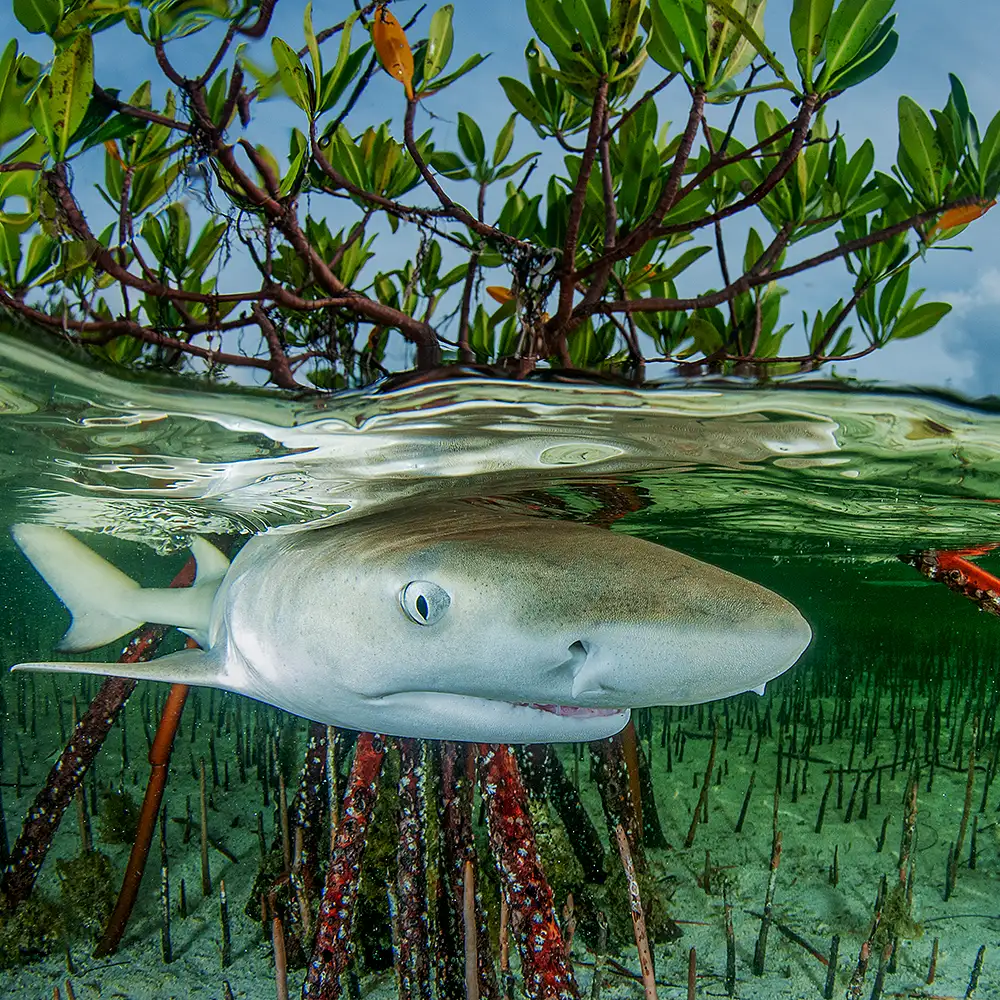As an essential resource for biodiversity and coastal protection, the sanctuary faces challenges in sustainable management and funding. This project introduces an innovative, nature-based business model to secure the sanctuary’s long-term ecological and economic sustainability.
Peru’s largest mangrove forest: The Manglares de Tumbes National Sanctuary
The Manglares de Tumbes National Sanctuary (SNLMT), Peru’s largest and most vital mangrove forest, spans 29.72 square kilometers along the Peru-Ecuador border. This unique ecosystem supports over 148 bird species, 105 fish species, and a variety of rare mollusks, crustaceans, and mammals, many of which are endangered and found only here.
Project Info
More information
More projects by Consorcio Manglares del Noroeste del Perú, supported by the Blue Carbon Accelerator Fund (BCAF):
Podcast
Consorcio Manglares del Noroeste del Perú: Pioneering sustainable management for the mangroves sanctuary
Consorcio Manglares del Noroeste del Perú is pioneering conservation in the Mangroves Sanctuary with a sustainable, innovative approach. Utilizing the Blue Carbon Accelerator Fund (BCAF) model, the project secures long-term conservation while uplifting the local community.
This strategy includes selling carbon credits, introducing seafood extraction fees, and expanding eco-tourism. Additionally, initiatives like enhancing shrimp production, achieving vertical export integration, and refining tourism offerings aim to cover management costs and provide sustainable income for local fishers and new tourism opportunities.
Aligned with IUCN Green List standards, the project underscores its commitment to effective, sustainable sanctuary management, securing the ecosystem’s future.
How BNCFF supports the Mangroves Sanctuary initiative
The Blue Natural Capital Financing Facility (BNCFF) is instrumental in advancing the Mangroves Sanctuary initiative, offering crucial funding and technical expertise. BNCFF’s guidance in market research, business planning, and valuation strengthens the sanctuary’s business model to attract further investment. This partnership ensures the project adheres to the highest environmental and social sustainability standards, bolstering its long-term impact and viability.
Impacts created
Nature
People
Business
Calls for Proposals
There are no open calls for proposals. Sign up for email alerts to be notified of the next call and receive updates on BNCFF and BCAF projects, lessons learned, and more, or email us at bluenaturalcapital@iucn.org.



























